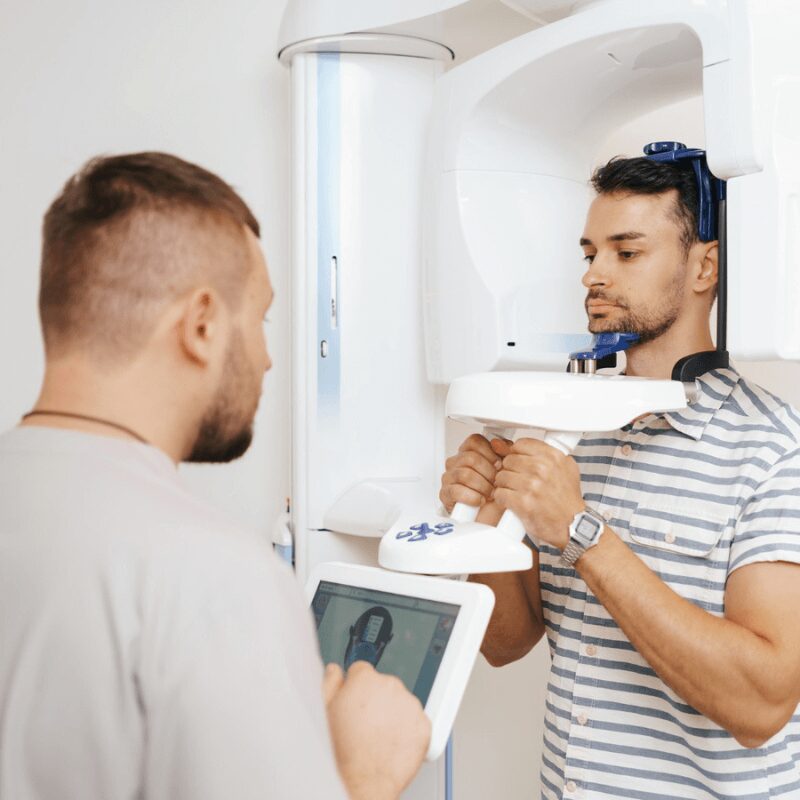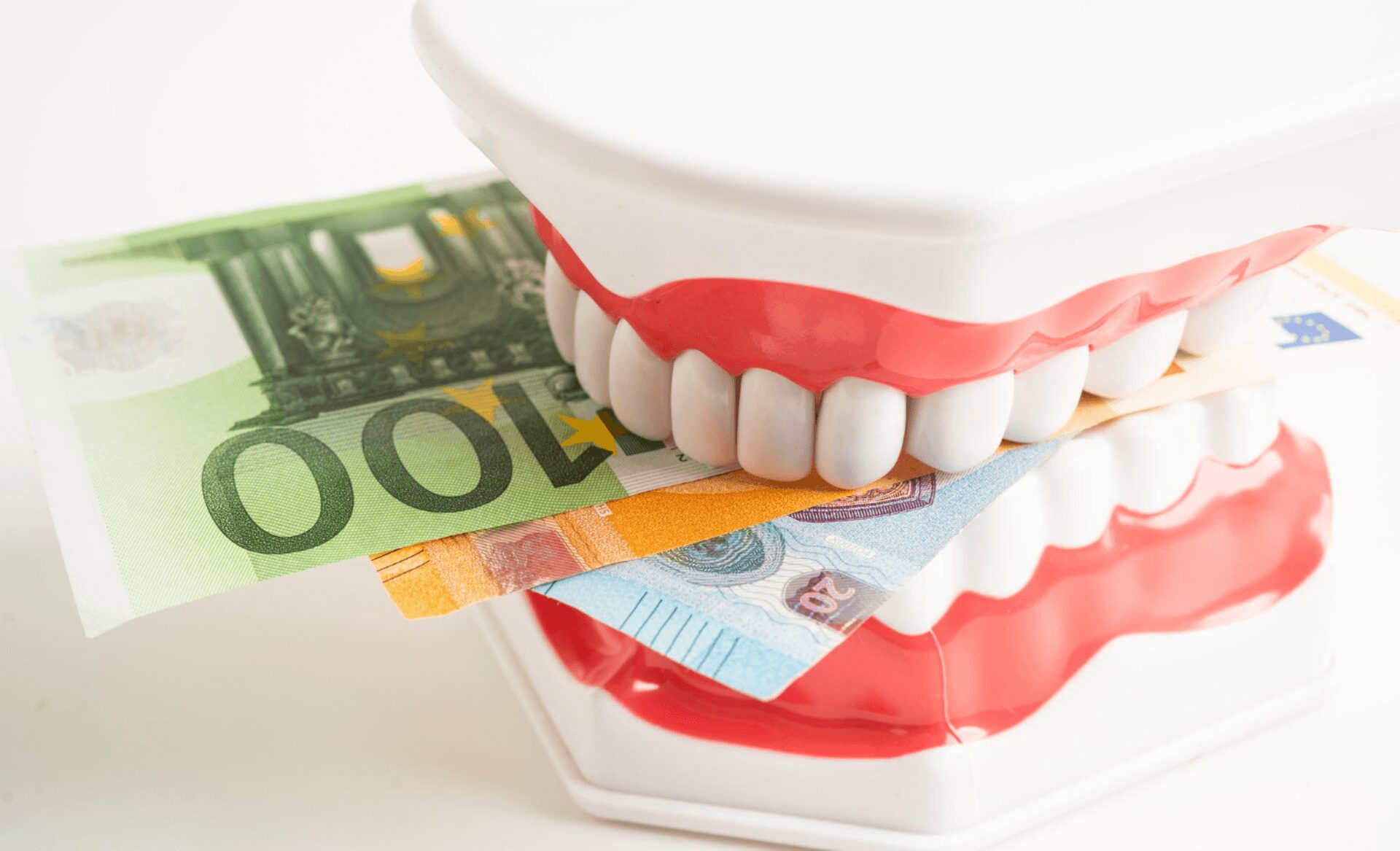When facing multiple missing teeth or failing teeth, full mouth dental implants represent both a life-changing solution and a substantial financial investment. With success rates exceeding 95% over 10-20 years, dental implants specifically replace natural teeth with permanent, functional alternatives that can last a lifetime. However, understanding the true cost associated with full mouth dental implants involves considering various factors that affect pricing, including the number of implants required and your location.
This comprehensive guide from Advanced Indiana provides a detailed breakdown of everything you need to understand about full mouth dental implant costs in 2025, empowering you to make a well-informed decision regarding this important investment in your oral health and overall quality of life.
Full Mouth Dental Implant Costs Overview
The cost of complete mouth dental implants varies dramatically based on several factors, but understanding the general pricing landscape helps set realistic expectations for this transformative dental implant procedure. Additionally, complete mouth dental implants may involve additional costs related to procedures such as bone grafts or sinus lifts if required.
Average Cost Ranges:
- Complete full mouth restoration (both arches): $20,000 to $60,000
- Single arch treatment: $10,000 to $35,000
- Premium cases with complex needs: Up to $90,000
Treatment-Specific Pricing:
- All-on-4 procedures: $20,000 to $35,000 per arch
- Traditional full arch dental implants (6-8 implants): $40,000+ per arch
- Implant supported dentures: Starting around $15,000 per arch
- Single dental implant (including crown and abutment): $3,000 to $6,000
The wide pricing range reflects the highly customized nature of dental implants treatment. Unlike standardized procedures, each patient’s bone density, oral health status, and aesthetic goals require a custom treatment plan that directly impacts the final investment.
For context, affordable dental implants options like mini implants cost $500-$1,500 each but aren’t suitable for full mouth restoration. Meanwhile, traditional dentures may seem more affordable upfront but require replacement every 7-10 years, making dental implants a more cost effective treatment over time.
Factors Affecting Full Mouth Implant Pricing
Multiple variables influence the final cost of your mouth dental implants, creating significant price variations even within the same geographic area.
Number of Implants Required
The foundation of pricing lies in how many implants your treatment plan requires:
- All-on-4 approach: Uses four strategically angled implants per arch, minimizing surgical complexity and costs
- Traditional method: Requires 6-8 implants per arch for maximum stability, significantly increasing material and surgical costs
- Hybrid approaches: May use 5-6 implants per arch, balancing stability with cost considerations
Type of Prosthetic Material
Your replacement teeth material choice dramatically affects pricing:
- Acrylic hybrids: Most economical option, suitable for many patients
- Zirconia bridges: Premium material offering superior aesthetics and durability, but commanding higher fees
- Titanium frameworks: Provide exceptional strength but increase overall treatment costs
Geographic Location and Market Rates
Location significantly impacts dental implants cost, with urban areas typically charging 20-40% more than rural settings:
- Metropolitan areas: Higher overhead costs, premium market positioning
- Rural practices: Lower operational expenses, more competitive pricing
- Teaching hospitals: Potential cost savings with supervised resident care
Surgeon Experience and Credentials
Board-certified implantologists and periodontists command premium fees but often provide:
- Lower complication rates
- More predictable outcomes
- Comprehensive warranty programs
- Advanced techniques reducing treatment time
Additional Procedures Required
Many patients need supplementary treatments that add to the base cost:
- Bone grafting: $1,500 to $3,000 per site for insufficient jawbone
- Tooth extractions: $150 to $300 per tooth for failing teeth removal
- Sinus lifts: $2,000 to $4,000 for upper jaw procedures
Material Quality Standards
FDA-approved, medical-grade titanium implants cost more than alternative materials but provide superior osseointegration and longevity. High-grade titanium is used in dental implants for durability and strength. Utilizing bone grafting materials from reputable manufacturers similarly affects pricing but impacts success rates.
Types of Full Mouth Implant Solutions
Understanding different treatment approaches helps you evaluate which option balances your needs, timeline, and budget most effectively.
All-on-4 Dental Implants
The All-on-4 technique revolutionized full mouth restoration by using four strategically placed implants per arch to support a complete set of replacement teeth.
Key Advantages:
- Often completed with teeth in a day procedures for immediate function
- Typically avoids bone grafting requirements, reducing costs and complexity
- Shorter treatment timeline compared to traditional approaches
- Fixed, non-removable prosthesis eliminates denture inconvenience

Cost Considerations:
- Range: $20,000 to $35,000 per arch in most markets
- Lower end pricing often available at dental chains or teaching institutions
- Premium pricing in metropolitan areas or specialist practices
Ideal Candidates:
- Patients with adequate bone density in anterior jaw regions
- Those seeking faster treatment completion
- Individuals wanting to avoid extensive bone grafting procedures
Traditional Full Arch Implants
This comprehensive approach uses 6-8 implants per arch, providing maximum stability and load distribution for your artificial teeth.
Key Advantages:
- Highest long-term stability and durability
- Individual crown replacement possible without affecting entire arch
- Superior load-bearing capacity for challenging cases
- Most closely mimics natural tooth root distribution
Cost Considerations:
- Typically exceeds $40,000 per arch due to additional implants and surgical complexity
- Multiple surgical appointments over 3-6 months healing period
- Higher material costs from increased implant quantity
Ideal Candidates:
- Patients with severe bone loss requiring maximum support
- Those prioritizing long-term stability over initial cost savings
- Individuals with heavy bite forces or bruxism habits
Implant-Supported Dentures
Implant-supported dentures are anchored to the jawbone with titanium implants. They feel and function like natural teeth. This approach provides the most affordable entry point into implant-based tooth replacement options while significantly improving denture stability.
Key Advantages:
- Most economical implant-based solution starting around $15,000 per arch
- Substantial improvement over conventional dentures
- Uses fewer implants (2-4 per arch), reducing surgical requirements
- Removable design allows easier cleaning and maintenance
Cost Considerations:
- Initial investment significantly lower than fixed options
- Denture replacement required every 10-20 years
- Ongoing maintenance costs for relines and adjustments
Ideal Candidates:
- Budget-conscious patients seeking implant benefits
- Those comfortable with removable appliances
- Patients with significant bone loss unsuitable for fixed options
Insurance Coverage and Financing Options
Understanding insurance limitations and available financing helps make dental implants more accessible despite the substantial investment required. Many dental practices provide financing options to help make dental implants affordable.
Dental Insurance Limitations
Most dental insurance plans provide limited coverage for dental implant procedures:
- Typical annual maximums: Around $5,000, covering only a small portion of treatment costs
- Coverage patterns: May cover prosthetic components (crowns, bridges) but exclude surgical implant placement
- Waiting periods: Many dental insurance plans impose 6-12 month waiting periods for major procedures
Medical Insurance Possibilities
In specific circumstances, medical and dental insurance may provide coverage:
- Trauma cases: Accidents requiring reconstructive surgery
- Cancer treatment: Jaw reconstruction following tumor removal
- Congenital conditions: Birth defects affecting jaw development
- Medical necessity documentation: Requires detailed justification from treating physicians
Third-Party Financing Solutions
Specialized healthcare financing makes treatment accessible through extended payment terms:
Popular Financing Companies:
- CareCredit: Healthcare-specific credit with promotional interest rates
- LendingClub: Personal loans for medical procedures
- Prosper Healthcare Lending: Dental treatment financing specialist
Common Terms:
- 12-84 month payment plans
- 0% introductory periods (typically 6-24 months)
- Fixed interest rates for longer terms
- Pre-qualification without credit impact
In-House Payment Plans
Many dental practices offer internal financing to provide affordable monthly fees:
- Customized payment schedules based on treatment phases
- Often interest-free for shorter terms
- Direct relationship with your dental office
- Flexible terms based on individual circumstances
Additional Costs to Consider

Beyond the base treatment cost, several additional expenses contribute to your total investment in restoring tooth function and oral health.
Diagnostic and Planning Costs
Comprehensive treatment planning requires advanced imaging:
- CBCT/CT scans: $350 to $515 per scan for precise implant placement planning
- Digital impressions: Advanced scanning technology for custom prosthetics
- Consultation fees: Initial evaluation and treatment planning sessions
Preparatory Procedures
Many patients require additional treatments before implant placement:
Tooth Extractions:
- Simple extractions: $150 to $300 per tooth
- Complex surgical extractions: $300 to $800 per tooth
- Multiple tooth extractions may qualify for package pricing
Bone Grafting Procedures:
- Utilizing bone grafting for inadequate bone volume: $1,500 to $3,000 per site
- Ridge augmentation for width restoration
- Sinus lifts for upper jaw implant placement: $2,000 to $4,000
Sedation and Comfort Options
Patient comfort during extensive procedures often requires sedation:
- Oral sedation: $500 to $800 for anxiety management
- IV sedation: $800 to $1,500 for deeper relaxation
- General anesthesia: $1,500+ for complex full mouth cases

Long-Term Maintenance Considerations
Successful implants require ongoing care to ensure longevity:
- Annual follow-up visits: $200 to $400 per appointment
- Professional cleanings: $150 to $300 every 3-6 months
- Potential prosthetic maintenance: $500 to $1,000 annually for adjustments and repairs
Understanding these additional costs helps you budget for the complete treatment process and avoid unexpected expenses that could impact your financial planning.
Choosing the Right Provider
Selecting the appropriate dental professional significantly impacts both your treatment outcome and overall investment value.
Board Certification Importance
Seek providers with specialized training in dental implant surgery:
Oral and Maxillofacial Surgeons:
- Extensive surgical training in jaw and facial procedures
- Hospital-based residency programs
- Experience with complex bone grafting and reconstruction
Periodontists:
- Specialization in gum disease and supporting structures
- Advanced training in implant placement and maintenance
- Focus on long-term oral health outcomes
Prosthodontists:
- Expertise in tooth replacement and restoration
- Advanced training in complex prosthetic rehabilitation
- Specialization in full mouth reconstruction cases
Practice Infrastructure Advantages
Comprehensive dental offices with in-house capabilities offer several benefits:
- On-site dental laboratories: Faster turnaround times and better quality control
- Advanced imaging technology: Precise treatment planning and execution
- Coordinated care teams: Streamlined communication and treatment delivery
- Emergency support: Immediate access for post-treatment concerns

Questions for Provider Evaluation
During consultations, ask specific questions to assess expertise:
- Experience metrics: “How many full mouth cases do you complete annually?”
- Success rates: “What are your implant survival rates at 5 and 10 years?”
- Complication management: “How do you handle potential complications or failures?”
- Warranty policies: “What guarantees do you provide on implants and prosthetics?”
- Treatment timeline: “What is the expected timeline from start to completion?”
Verification and References
Validate provider credentials through:
- State dental board license verification
- Professional association memberships, ADA memberships
- Patient testimonials and before/after photographs
- Online review analysis across multiple platforms
Cost Comparison by Geographic Region
Regional variations in pricing reflect local market conditions, overhead costs, and competitive landscapes.
Regional Pricing Examples
Florida Market:
- Full mouth implants: $22,889 to $31,258 per arch
- Higher tourism volume and retiree population drive competitive pricing
- Multiple providers specializing in full mouth reconstruction
Texas Market:
- All-on-4 procedures: $9,995 to $25,000 per arch
- Lower overhead costs in many metropolitan areas
- Significant price competition among providers
Washington DC Metro Area:
- Premium pricing due to high cost of living and educated demographics
- Limited provider availability drives higher fees
- Access to cutting-edge technology and techniques
Philadelphia Teaching Institutions:
Reduced costs through supervised resident programs
Extended treatment timelines for educational purposes
Access to latest research and techniques
Urban vs. Rural Pricing Patterns
Metropolitan Areas:
- 20-40% higher pricing than rural counterparts
- Greater provider selection and specialized services
- Higher overhead costs (rent, staff salaries, insurance)
- Access to advanced technology and continuing education
Rural Practice Advantages:
- Lower operational costs translate to patient savings
- Often more personalized care and flexible scheduling
- May require travel for specialized procedures
- Limited access to cutting-edge technology or techniques
Long-Term Value and Investment Considerations
Evaluating the price of complete oral dental implants requires considering the lifetime value proposition compared to alternative tooth replacement options.
Success Rate and Longevity Analysis
Dental implants demonstrate exceptional long-term performance:
- 10-year success rates: Exceed 95% with proper maintenance
- 20-year outcomes: Studies show 90%+ survival rates for quality implants
- Lifetime investment: Many implants last 25+ years with appropriate care
Cost Comparison with Alternatives
Traditional Dentures:
- Initial cost: $3,000 to $8,000 per arch
- Replacement cycle: Every 7-10 years
- Lifetime cost over 30 years: Often exceeds implant investment
- Hidden costs: Adhesives, relines, repairs, bone loss treatment
Dental Bridges:
- Limited applicability for full mouth restoration
- Require natural tooth reduction
- Average lifespan: 10-15 years before replacement
- Adjacent tooth complications over time
Quality of Life Improvements
Beyond financial considerations, implants provide measurable benefits:
Functional Advantages:
- Restore tooth function to near-normal levels
- Eliminate dietary restrictions common with dentures
- Preserve jawbone density and facial structure
- Improve speech clarity and confidence
Health Benefits:
- Better nutrition from improved chewing ability
- Reduced risk of gum disease and bone loss
- Enhanced oral health maintenance
- Prevention of shifting jaw line and facial changes


Maintenance Cost Analysis
Annual maintenance expenses for dental implants:
- Professional cleanings: $300 to $600 annually
- Periodic examinations: $200 to $400 per year
- Potential repairs: $500 to $1,000 occasionally
- Prosthetic replacement: Every 10-15 years, approximately $5,000-$10,000 per arch
Compared to denture maintenance, relines, and replacements, implant maintenance often costs less over extended periods while providing superior function and comfort.
Return on Investment Calculation
Consider the comprehensive value equation:
- Initial Investment: $20,000-$60,000 for full mouth restoration
- Annual Maintenance: $500-$1,000 average
- Expected Lifespan: 20+ years with proper care
- Quality of Life Benefits: Improved nutrition, confidence, social interaction
- Prevention Costs: Avoided bone loss, adjacent tooth problems, digestive issues
When calculated over decades, the per-year cost of dental implants often proves comparable to or less expensive than repeated denture replacements while providing dramatically superior function and quality of life.
Making Dental Implants Affordable
Despite the substantial upfront investment, several strategies can make dental implants more accessible within your budget constraints.
Phased Treatment Approaches
Many patients benefit from spreading treatment across multiple phases:
Single Arch Priority:
- Address the most problematic arch first
- Allow healing and adjustment period
- Complete second arch when financially feasible
Staged Implant Placement:
- Place implants in multiple surgical sessions
- Spread costs across several months or years
- Allow for payment plan management
Treatment Alternatives for Budget Constraints
All-on-4 vs. Traditional Approaches:
- All-on-4 reduces implant quantity and surgical complexity
- Often eliminates bone grafting requirements
- Provides fixed solution at lower cost than traditional methods
Hybrid Prosthetic Materials:
- Acrylic options reduce initial prosthetic costs
- Upgrade to premium materials in future if desired
- Functional results remain excellent with budget-friendly materials
Maximizing Insurance Benefits
Annual Benefit Optimization:
- Schedule treatment to utilize benefits across multiple plan years
- Coordinate timing with benefit renewal dates
- Consider supplemental dental insurance for enhanced coverage
Health Savings Account Usage:
- HSA and FSA funds apply to dental implant procedures
- Tax-advantaged spending for medical necessities
- Plan contributions around treatment timeline
Provider Payment Options
Interest-Free Financing:
- Many practices offer 12-24 month interest-free terms
- Avoid interest charges with strategic payment timing
- Preserve credit for other financial needs
Cash Payment Discounts:
- Some providers offer 5-10% discounts for full payment
- Negotiate payment terms during consultation process
- Consider timing with tax refunds or bonuses
The cost of full mouth dental implants represents a significant investment in your long-term oral health, function, and quality of life. While the initial expense ranges from $20,000 to $60,000 for complete restoration, the lifetime value often exceeds that of alternative treatments when considering longevity, maintenance costs, and functional benefits.
Success in managing these costs requires careful provider selection, understanding of financing options, and realistic planning for the complete treatment process. Board-certified specialists with experience in full mouth reconstruction provide the expertise necessary for optimal outcomes, while various financing solutions make treatment accessible despite insurance limitations. Most dental insurance plans may cover a portion of the costs associated with full-mouth dental implants, but coverage can vary substantially.
The investment in dental implants extends beyond mere tooth replacement, providing preservation of jawbone health, improved nutrition, enhanced confidence, and prevention of further oral health decline. When evaluated over decades of use, dental implants often prove more cost effective treatment than repeated conventional solutions while delivering superior quality of life benefits.
Schedule a consultation with certified Implantologists at Advanced Dental Care of Indiana, to discuss your specific needs and receive a personalized treatment plan with accurate cost estimates. Many providers offer complimentary consultations, allowing you to explore options without initial financial commitment while taking the first step toward restoring your smile and oral health.

